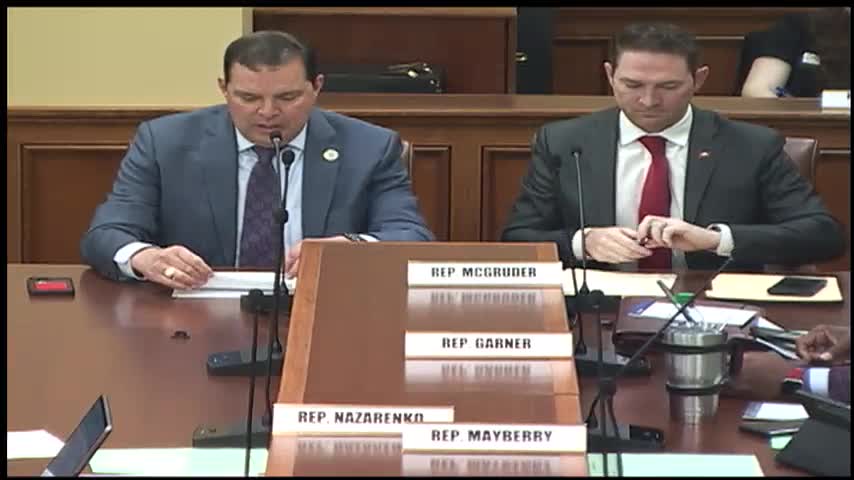Committee hears companion bill to let private‑school students join local public school activities under conditions
Get AI-powered insights, summaries, and transcripts
Subscribe
Summary
SB 303 would allow private‑school students to participate in local public school Activities governed by the Arkansas Activities Association if the private school does not offer the activity, subject to residency, enrollment and school acceptance rules; committee discussion emphasized permissive local control and fiscal implications.
Sen. Tyler Deese, sponsor in the Senate, and Rep. Randy Torres presented companion legislation (SB 303) to the House Education Committee that would allow private‑school students to participate in interscholastic activities offered by their resident public school when the private school does not offer that activity.
The bill’s sponsors said the proposal mirrors a recently enacted law allowing homeschool students to participate and is intended to help a small number of students — sponsors cited an average of about five students per school district in prior experience — who otherwise would lose access to band, choir or sports when their homeschool co‑op or private school does not offer the activity.
Nut graf: SB 303 would permit participation only when the activity falls under Arkansas Activities Association (AAA) rules, the student lives in the public school’s district, the public school chooses to accept the student (permissive, “may permit”), and — when the activity is outside regular class periods — the private‑school student must enroll in a nonacademic class at the public school so that partial state funding (one‑sixth of state foundation funding) follows the child and schools can meet insurance requirements.
Sponsors told the committee AAA worked with them on language and supports the bill. Rep. Torres and Sen. Deese said the public school would have discretion to accept or decline a private‑school student, that tryouts and eligibility rules remain the same, and that AAA’s catastrophic insurance coverage would apply when a student is enrolled at the public school. They also said the fiscal impact estimate presented to the committee likely represented a worst‑case scenario and that real‑world participation would be much smaller.
Committee members pressed for details about how the one‑sixth funding would flow (DESE representation at the hearing said the EFA account and semester enrollment mechanics would govern payments), how families who decline the Education Finance Account (EFA) would be handled (sponsors said the fiscal estimate assumes the state would pay when families do not enroll an EFA and the sponsor called that worst‑case), and local capacity concerns; sponsors emphasized permissive local control and the school’s right to say no if capacity or safety is a concern.
The committee did not take a final vote during the hearing and leaders said they would accept comments through the debate period and hold a final vote later. Sponsors said they would continue working with DESE and AAA on implementation details.
Ending: Sponsors described the measure as a low‑impact option intended to expand extracurricular opportunities for a small number of students while preserving local control and existing eligibility rules; the bill remained in committee pending further review of fiscal implications.
